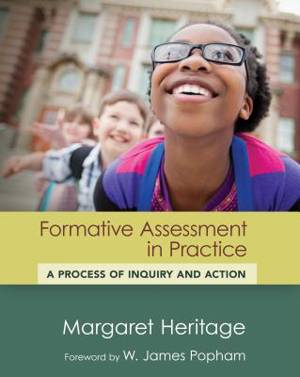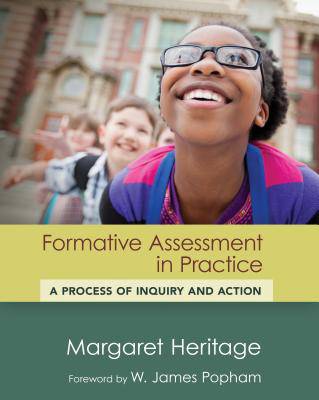
- Retrait gratuit dans votre magasin Club
- 7.000.000 titres dans notre catalogue
- Payer en toute sécurité
- Toujours un magasin près de chez vous
- Retrait gratuit dans votre magasin Club
- 7.000.0000 titres dans notre catalogue
- Payer en toute sécurité
- Toujours un magasin près de chez vous
44,45 €
+ 88 points
Format
Description
Margaret Heritage presents a practical guide to formative assessment as a process of "inquiry and action" essential to twenty-first century learning. In the wake of the development of the Common Core standards and the effort to develop the appropriate assessments to accompany them, formative assessment has attracted increasing attention from policy makers and practitioners alike. Yet this powerful and promising approach is often applied in ways that fail to capture its potential for improving student learning. In her book, Margaret Heritage presents a practical guide to formative assessment as a process of "inquiry and action" essential to twenty-first century learning. Heritage's approach is distinctive in that it is grounded in a "children's rights" framework--that is, the belief that assessment should be in the best interest of all students, that students should be involved in the decisions that ensue from assessment use, and that opportunities to learn, progress, and succeed will be available to all children equally. Accordingly, she addresses the students' own role in learning about themselves as learners and examines the classroom as a community of practice. The book also includes chapters on learning progressions and the policy contexts that support formative assessment. Skillfully interweaving theory and practice, this book promises to be an invaluable resource for teachers, teacher educators, and those interested in the academic and policy aspects of assessment.
Spécifications
Parties prenantes
- Auteur(s) :
- Editeur:
Contenu
- Nombre de pages :
- 176
- Langue:
- Anglais
- Collection :
Caractéristiques
- EAN:
- 9781612505510
- Date de parution :
- 01-03-13
- Format:
- Livre broché
- Format numérique:
- Trade paperback (VS)
- Dimensions :
- 188 mm x 231 mm
- Poids :
- 299 g

Les avis
Nous publions uniquement les avis qui respectent les conditions requises. Consultez nos conditions pour les avis.






